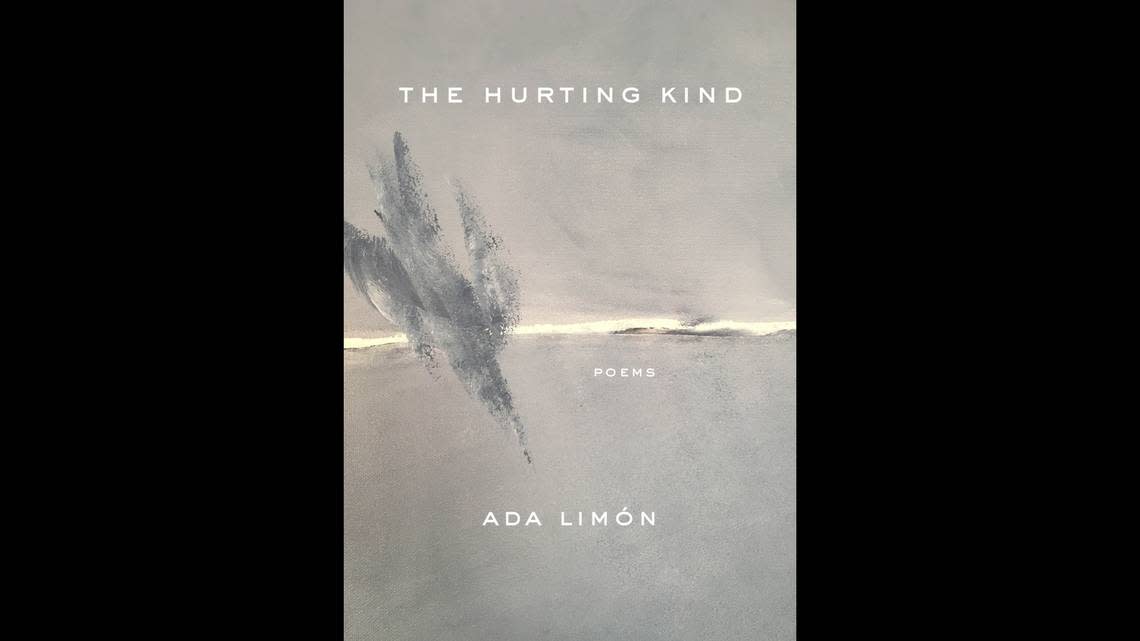‘Proud to represent Kentucky.’ Lexington writer Ada Limón is new U.S. poet laureate
The writer Ada Limón, who lives in Lexington, once told an interviewer that she took comfort in “the obscurity of poetry,” existing quietly outside of the hubbub.
Those days are long gone.
On Tuesday, the Library of Congress in Washington announced that Limón will be the next U.S. poet laureate, one of the nation’s most prestigious and highest profile literary positions.
“Ada Limón is a poet who connects,” Carla Hayden, the Librarian of Congress, said in a statement. “Her accessible, engaging poems ground us in where we are and who we share our world with. They speak of intimate truths, of the beauty and heartbreak that is living, in ways that help us move forward.”
The recognition fits neatly into the trajectory of Limón’s career.
At age 46, she has published six books of poetry, most recently, The Hurting Kind; won major awards and honors, including a Guggenheim Fellowship; taught writing at universities such as Columbia and Stanford; and appeared in The New Yorker. On her weekday podcast, The Slowdown, she promotes the work of her fellow poets.
Yet Limón herself did not quite believe what was happening June 1 when she was summoned to a mysterious Zoom call with — as it turned out — Hayden, the Librarian of Congress.
“I was completely at a loss for words,” Limón recalled in an interview on Monday. “She was there with her team, and she said, ‘I would like to welcome you to be the 24th poet laureate of the United States.’”
“It was not on my radar,” she said. “My first thought was, ‘Oh, are you sure? Did you get the right person?’ I was a little speechless and also — I don’t want to say in denial, but I had a hard time accepting it because it all seemed so surreal.”

Among her questions that day, Limón asked what, exactly, poets laureate do.
The answer: Whatever they want, more or less.
There is a modest stipend and a few formal duties, including a trip to Washington in September to read her poems and open the literary season at the Library of Congress. She is otherwise free to promote, as she sees fit, a national appreciation for literature generally and poetry specifically.
The next US poet laureate has KY roots. What to know about the prestigious position
Her one-year term comes with a one-year optional renewal. At least two other Kentuckians previously held the job: Allen Tate in 1943-44 and Robert Penn Warren in 1944-45 and again in 1986-87. (Not to be outdone, Kentucky names its own poets laureate at the state level. The incumbent is Crystal Wilkinson, also of Lexington.)
For Limón, who has been writing poetry and discussing the craft with people for two decades, this won’t be a new assignment. It will simply mean “the megaphone just got a little larger,” she said.
Limón said she has two “core intentions.” First, she believes poetry can help people to reclaim their humanity, to give them access to their full range of emotions, in a time when they are deliberately choosing to close themselves off. Second, she said, poetry can allow people to mend their ties with the natural world.
“We can start to remember that our relationship with the Earth is a reciprocal one,” she said.
Many of her more recent poems are observations of nature around Bluegrass horse farms and her own yard in Lexington. In “Give Me This,” she spies “a liquidity moving all muscle and bristle. A groundhog slippery and waddle thieving my tomatoes still green in the morning’s shade.”
Limón grew up in Sonoma, Calif., in the wine-making region north of San Francisco. She moved to Kentucky 11 years ago to be with her now-husband, Lucas Marquardt, a racing journalist.
She is a fiercely loyal Kentuckian who hopes that another lesson she can teach is respect for her current home.
“I feel very lucky that Kentucky will be my home base for this,” Limón said. “Because I think it’s important to remember that the literary legacy of the United States is not just bicoastal. The United States has a rich history of literary accomplishment throughout each state, and I’m proud to represent Kentucky in that way.”
With her obscurity well and truly blown, Limón said she also wants to find occasional breaks “to carve out time for myself, to reflect and pull back.” While traveling around the country to speak and teach and give interviews can be productive, peaceful isolation is necessary in order to write poetry, she said.
“I really believe in the repair that rest and solitude can offer,” she said.
